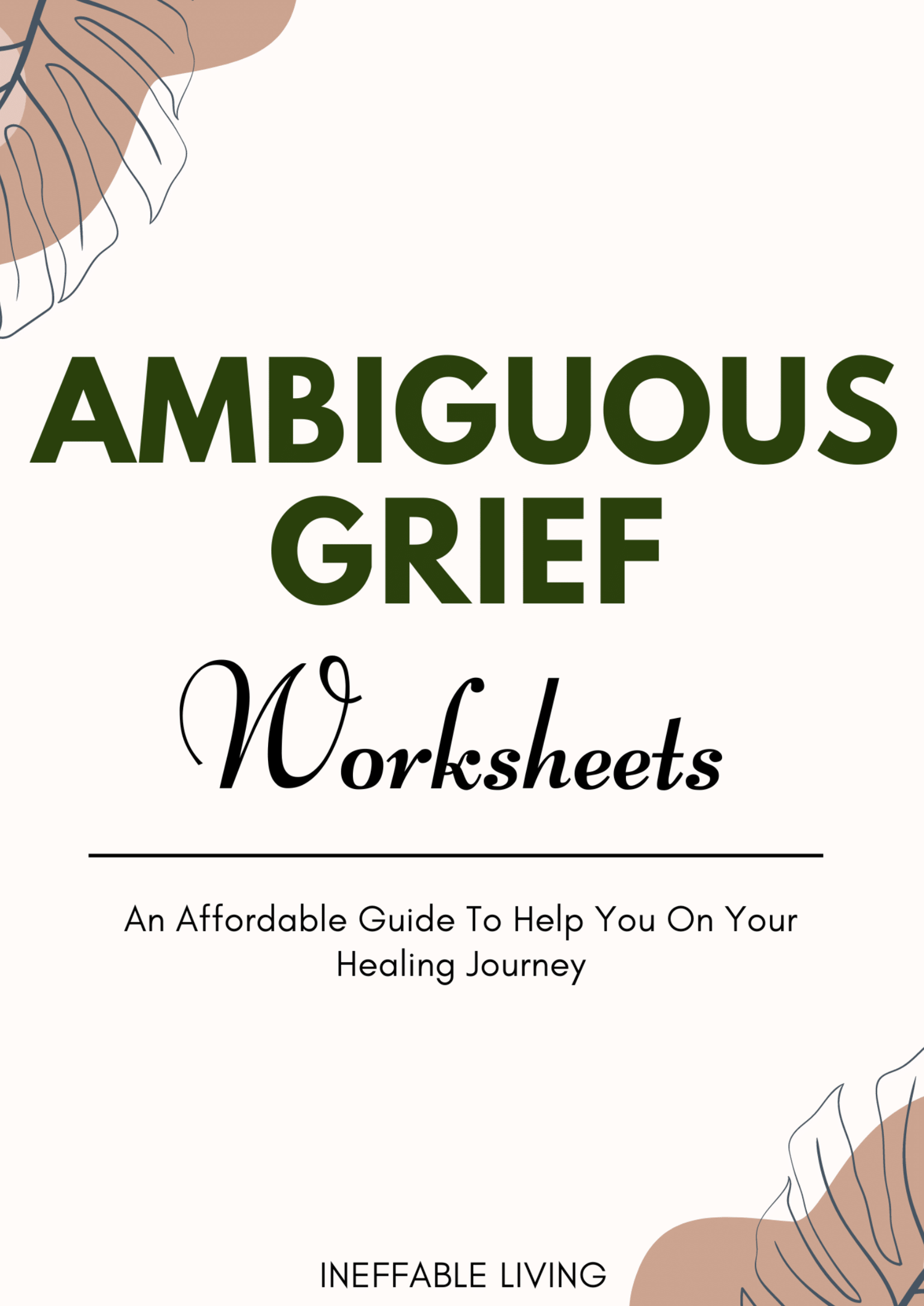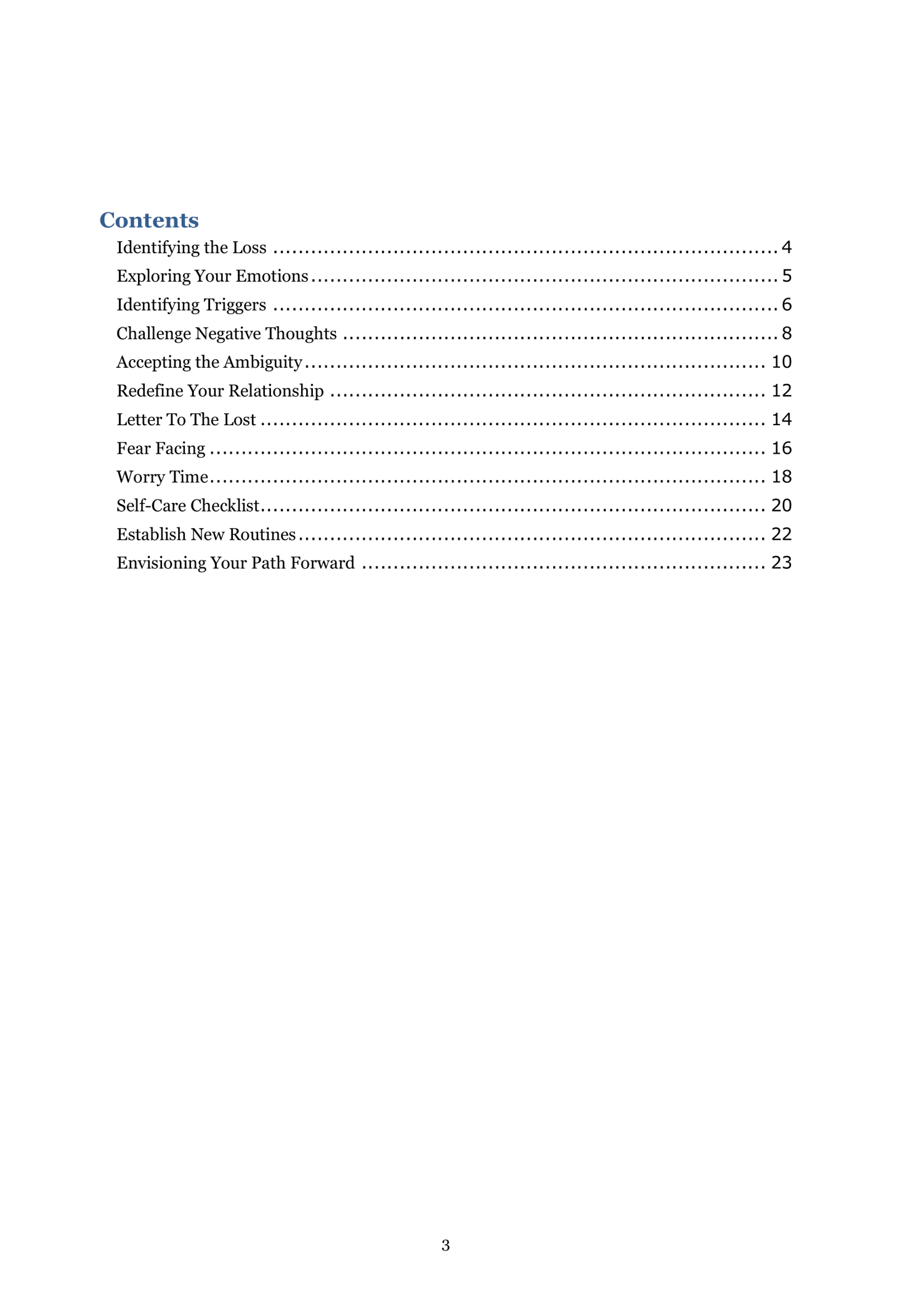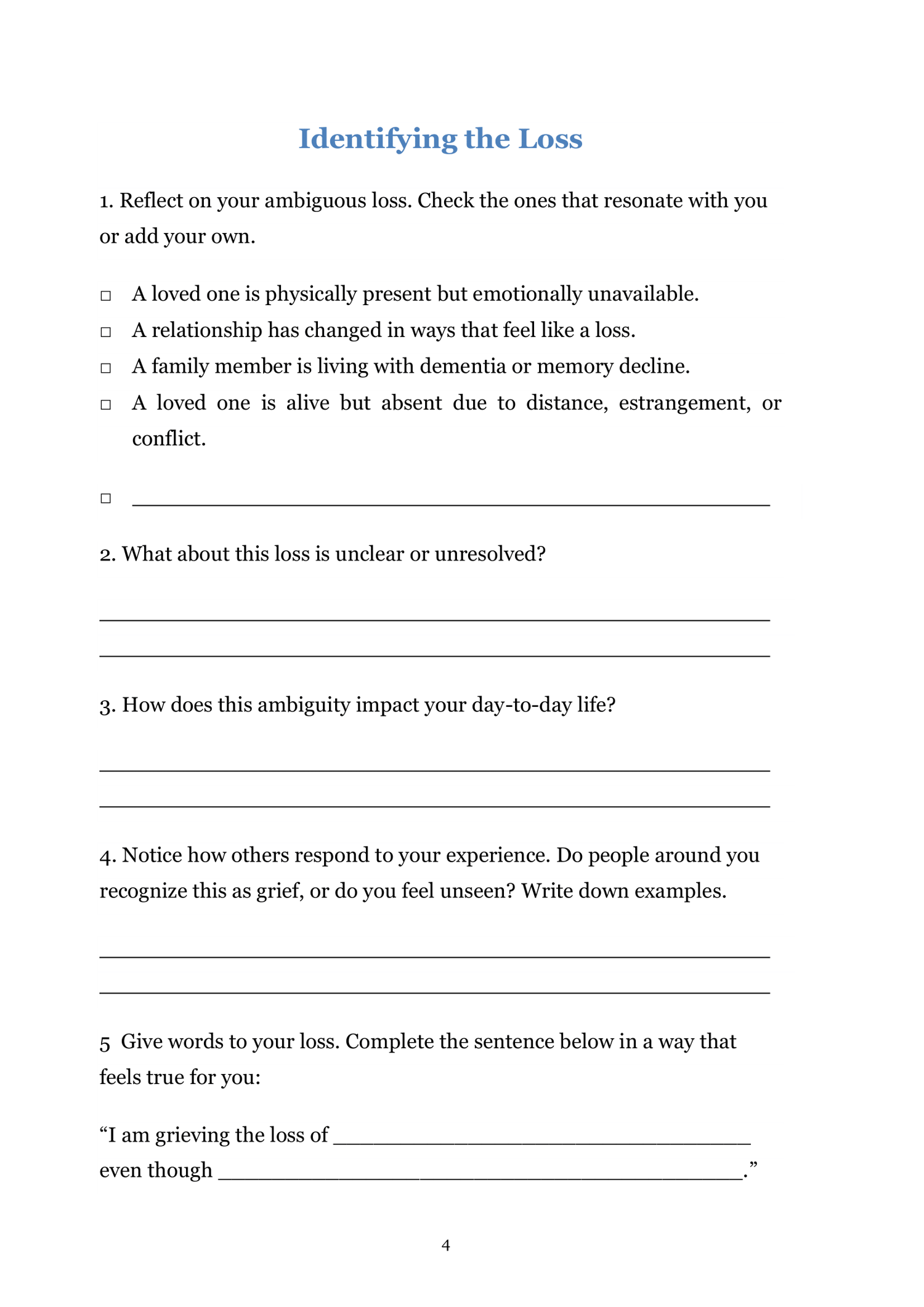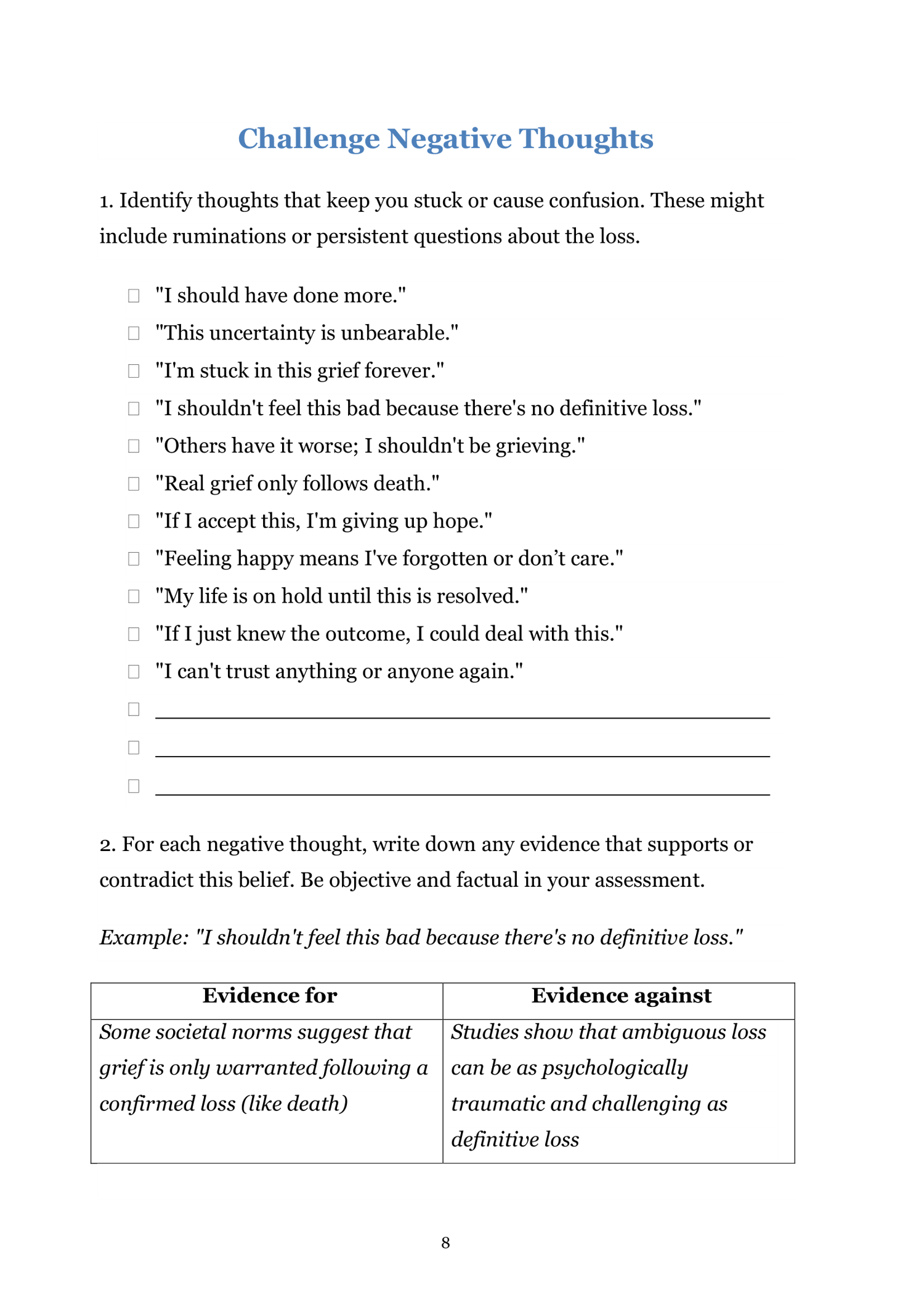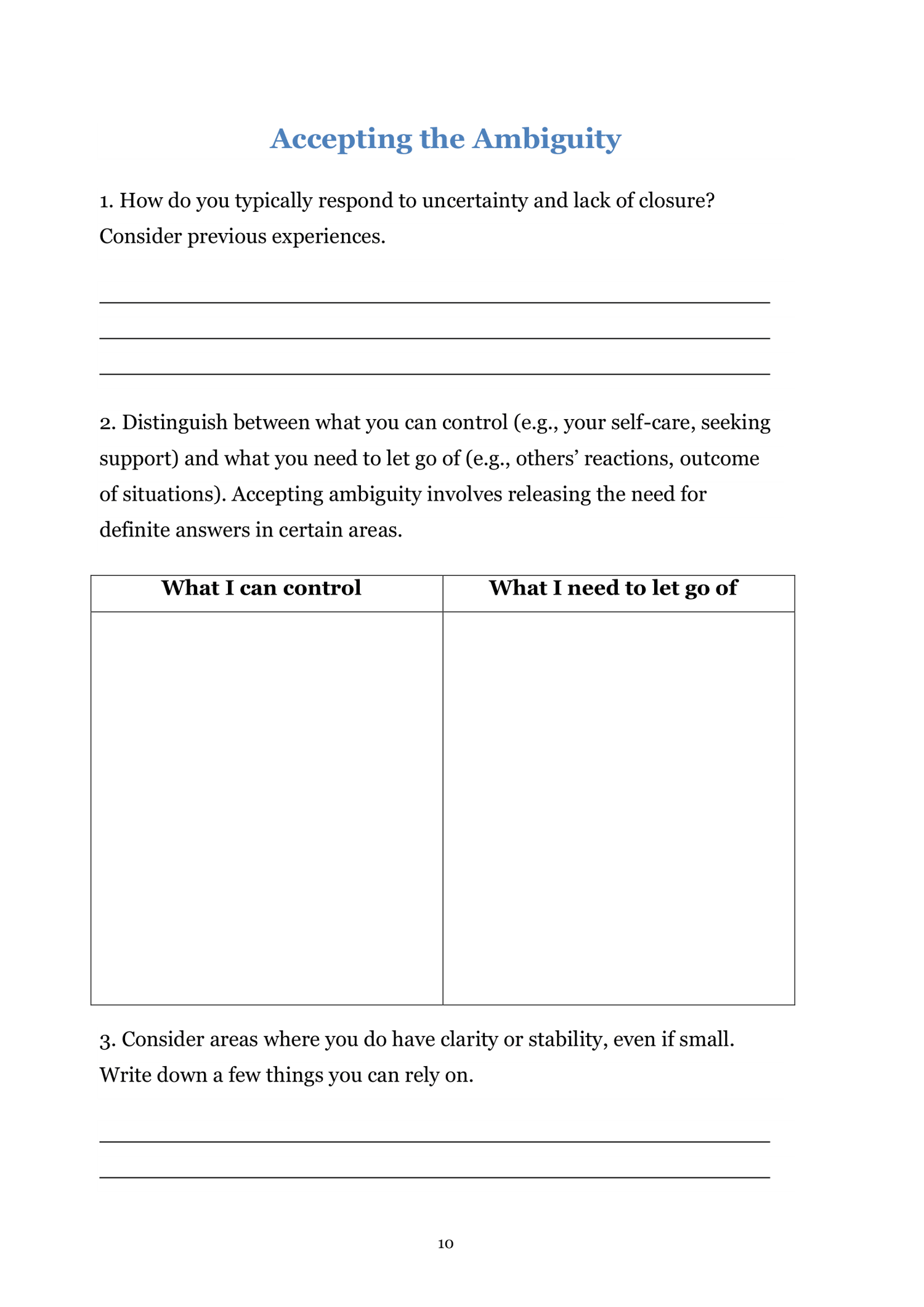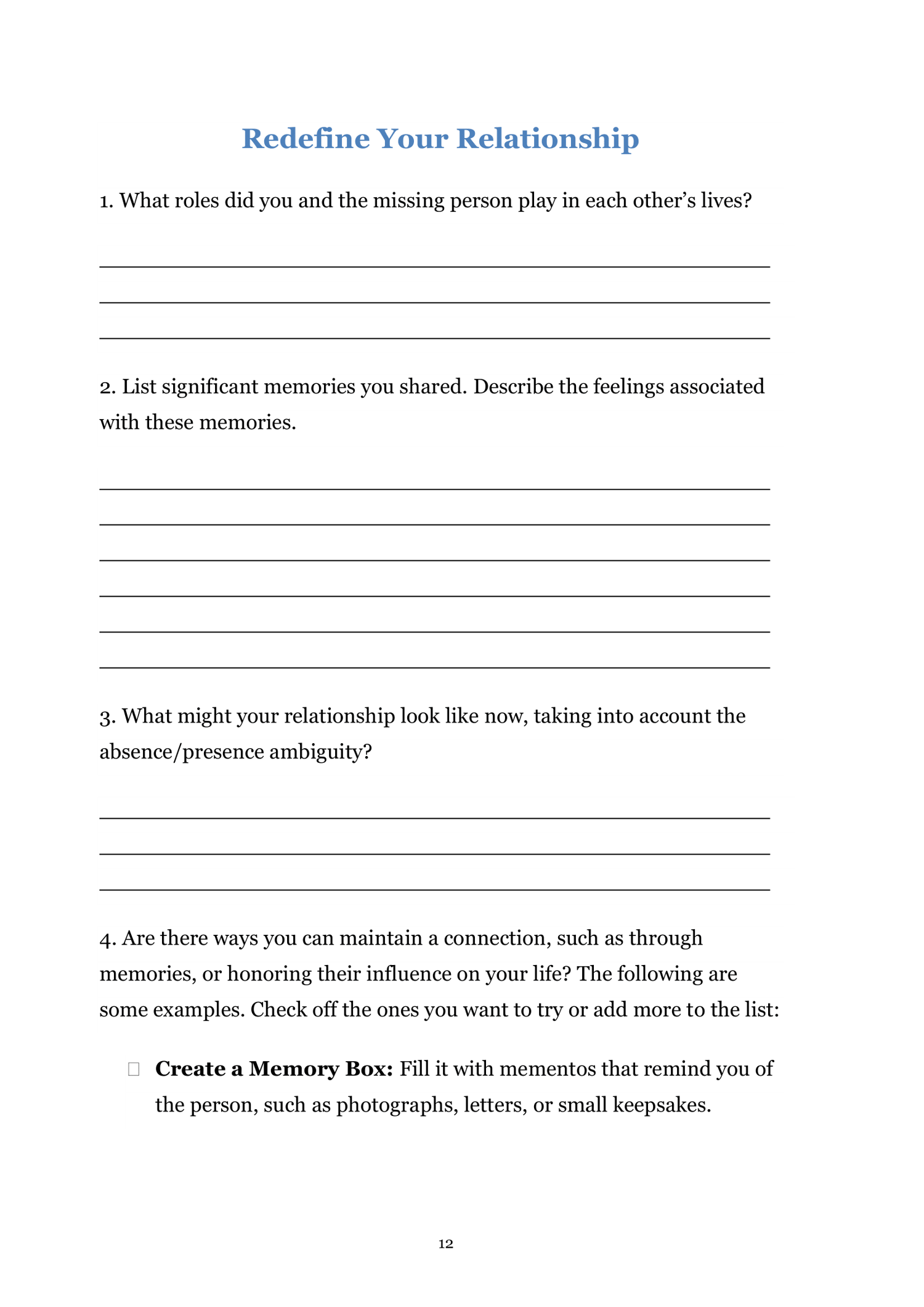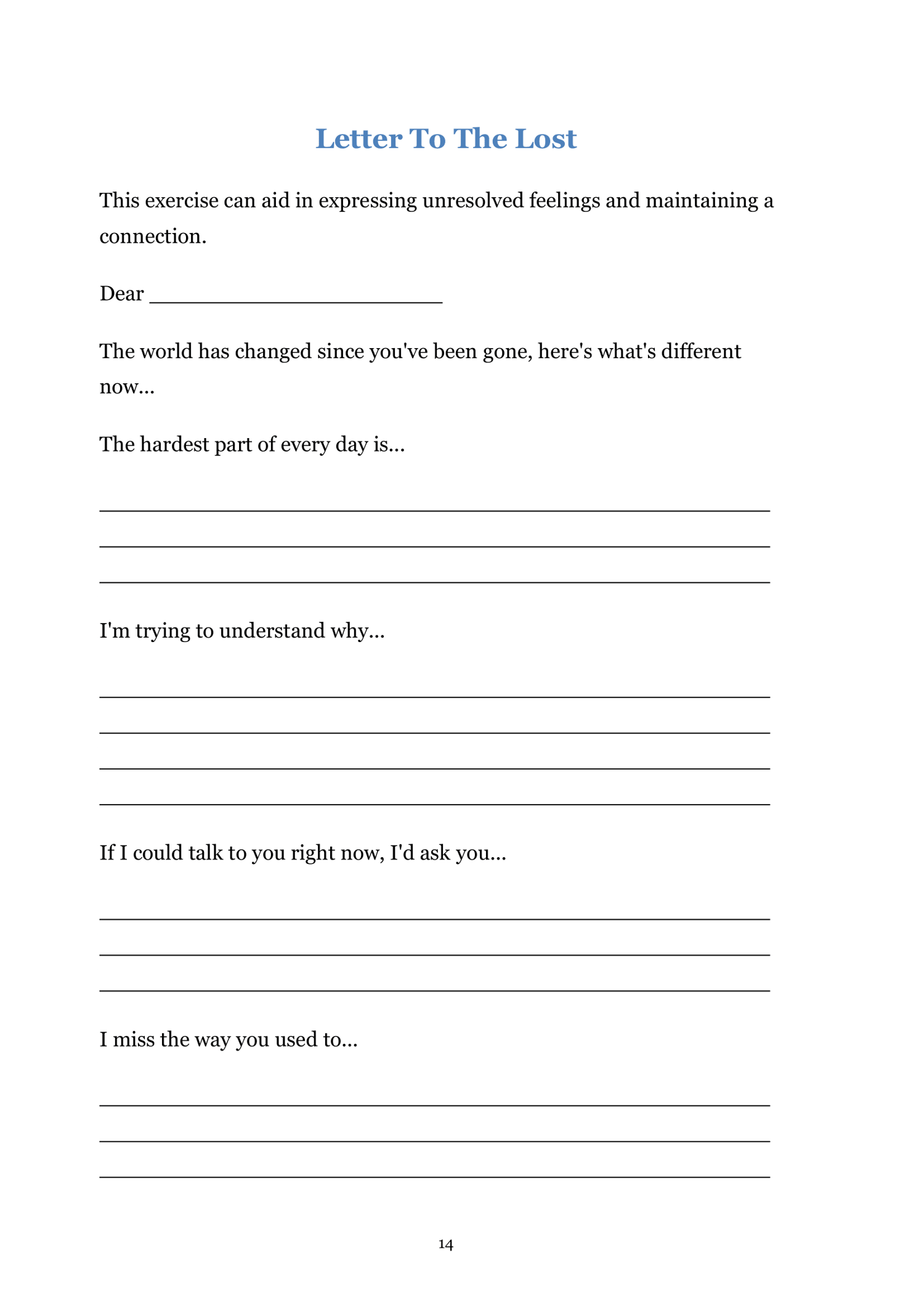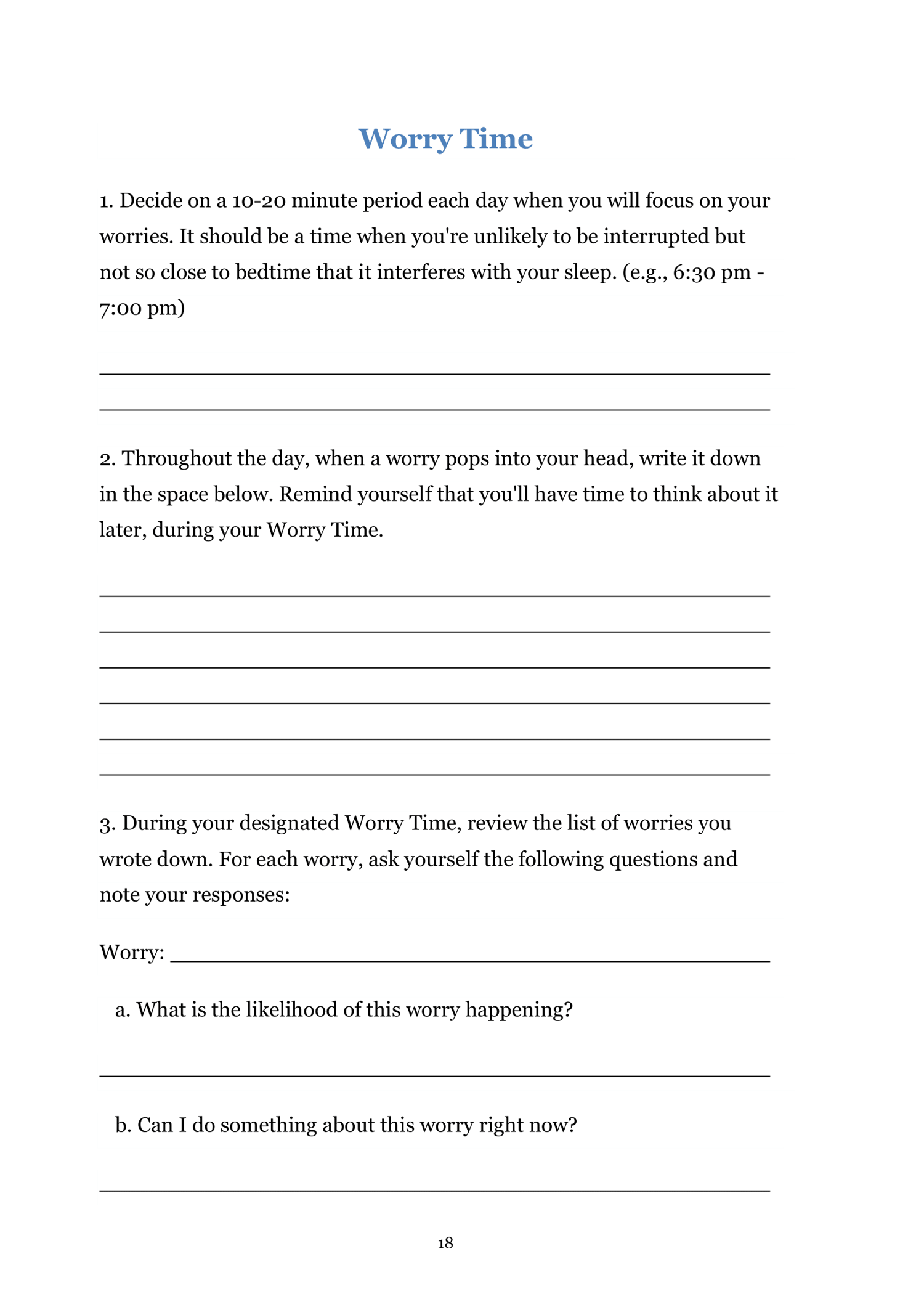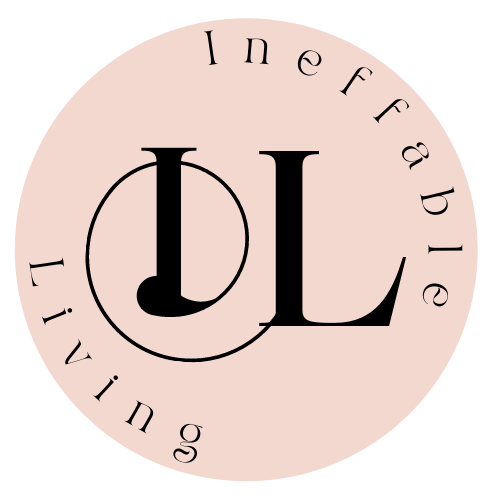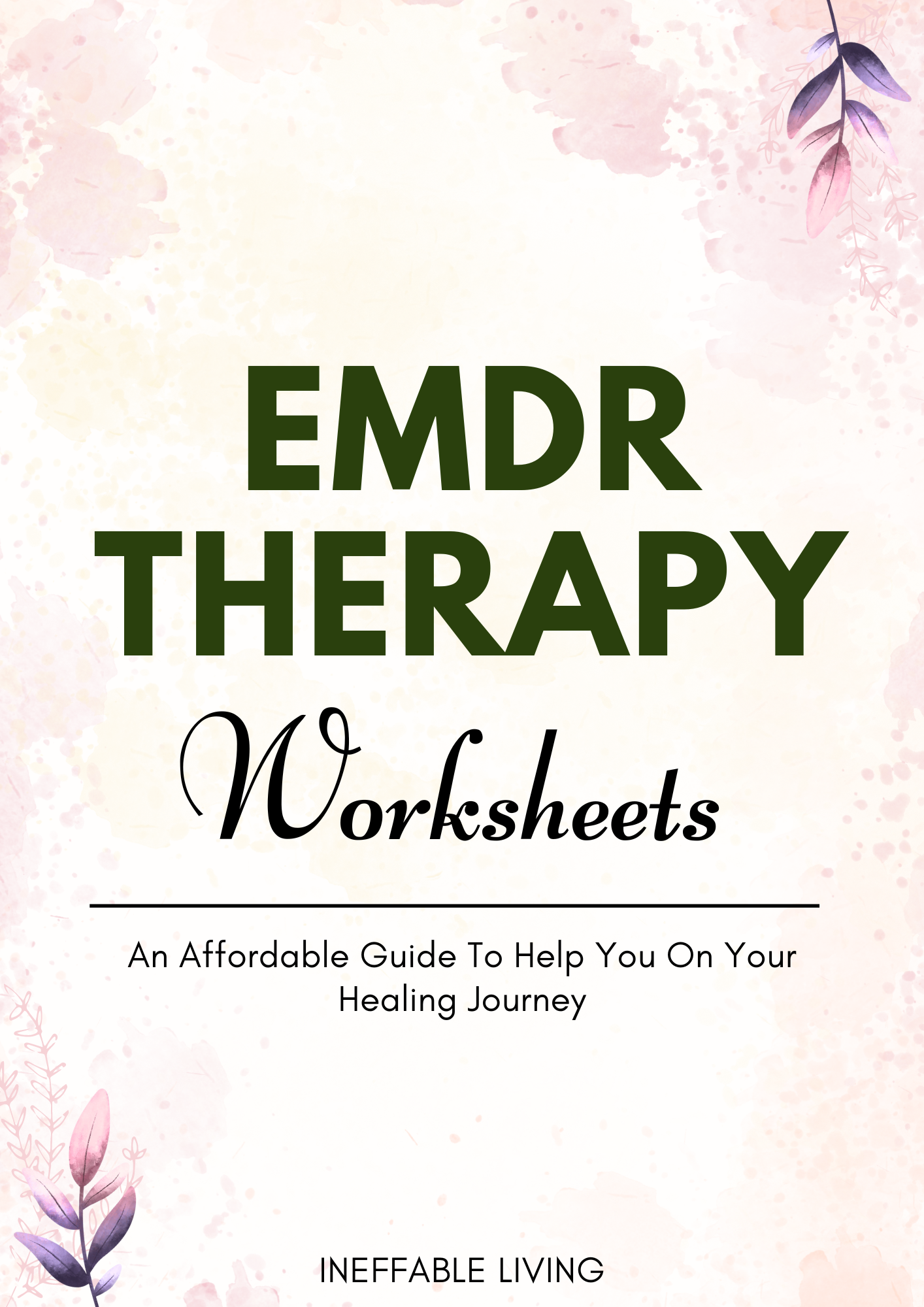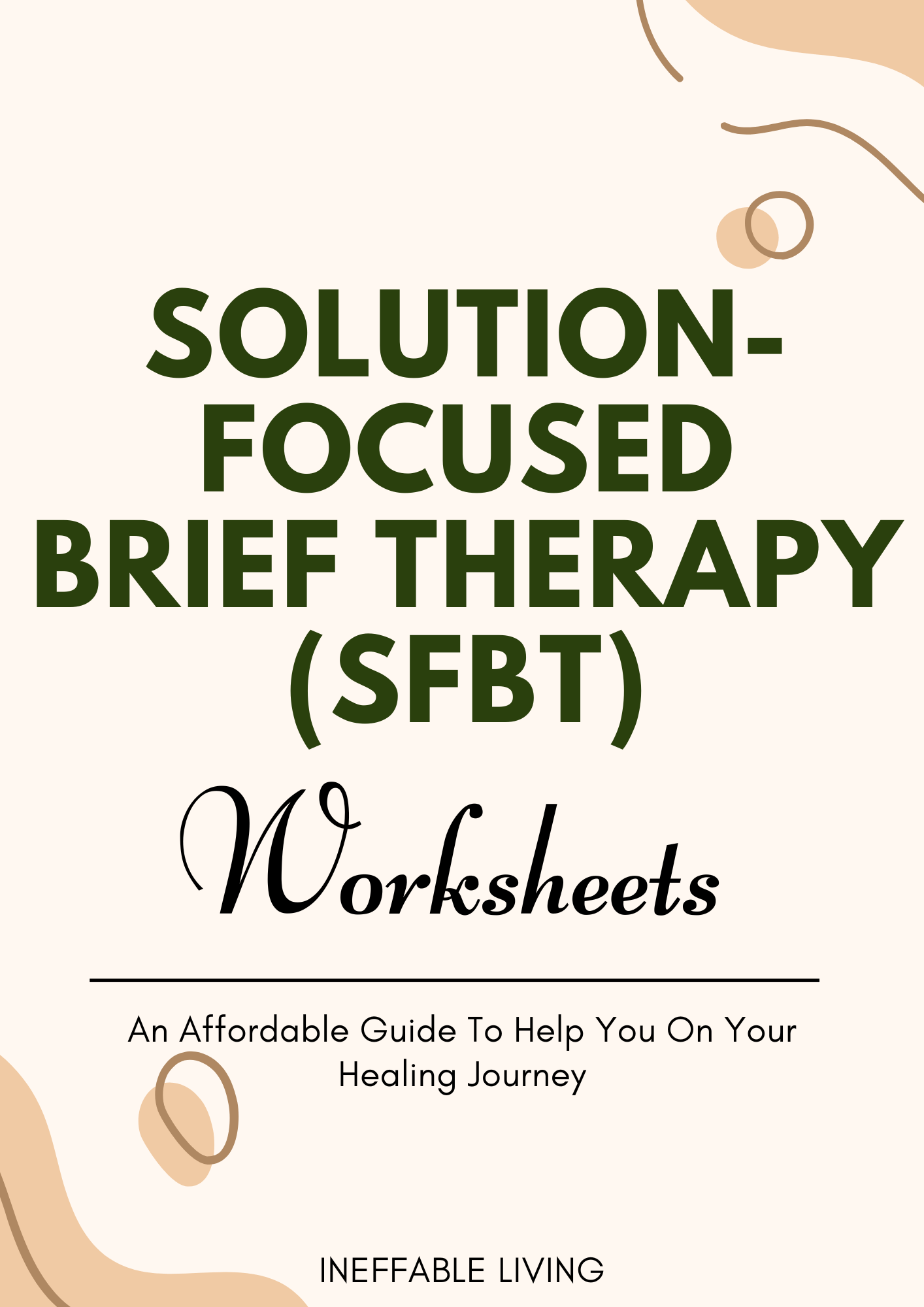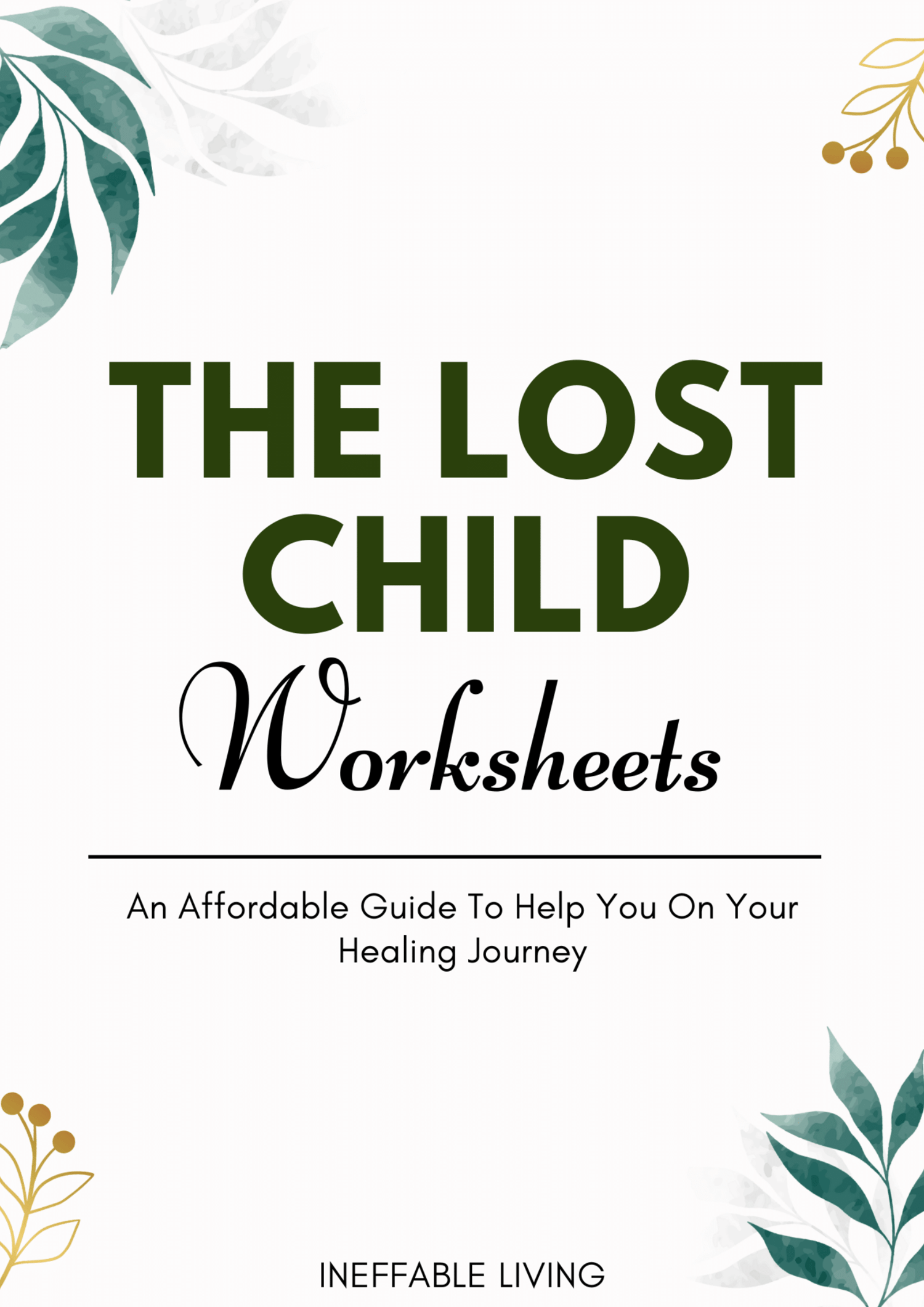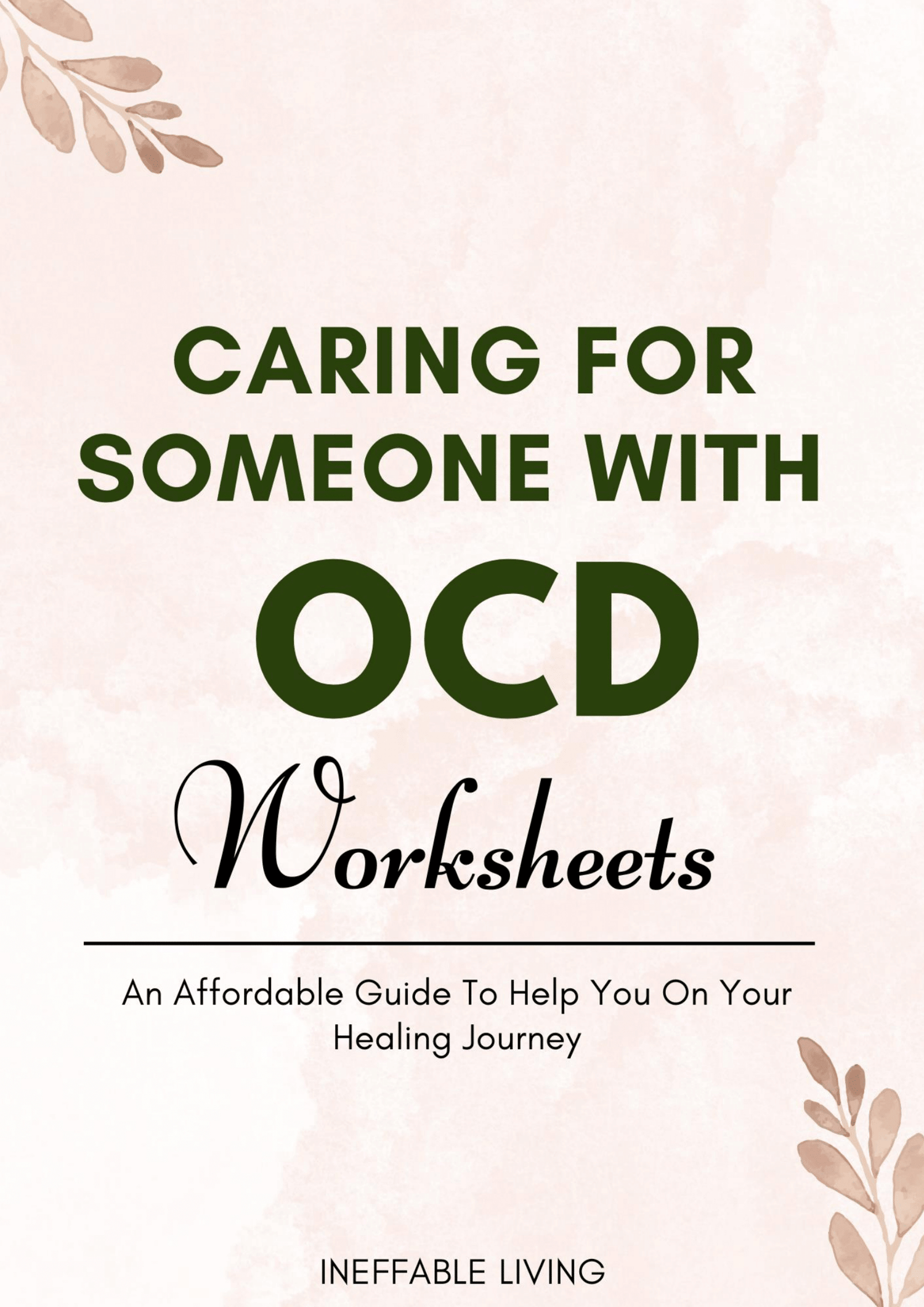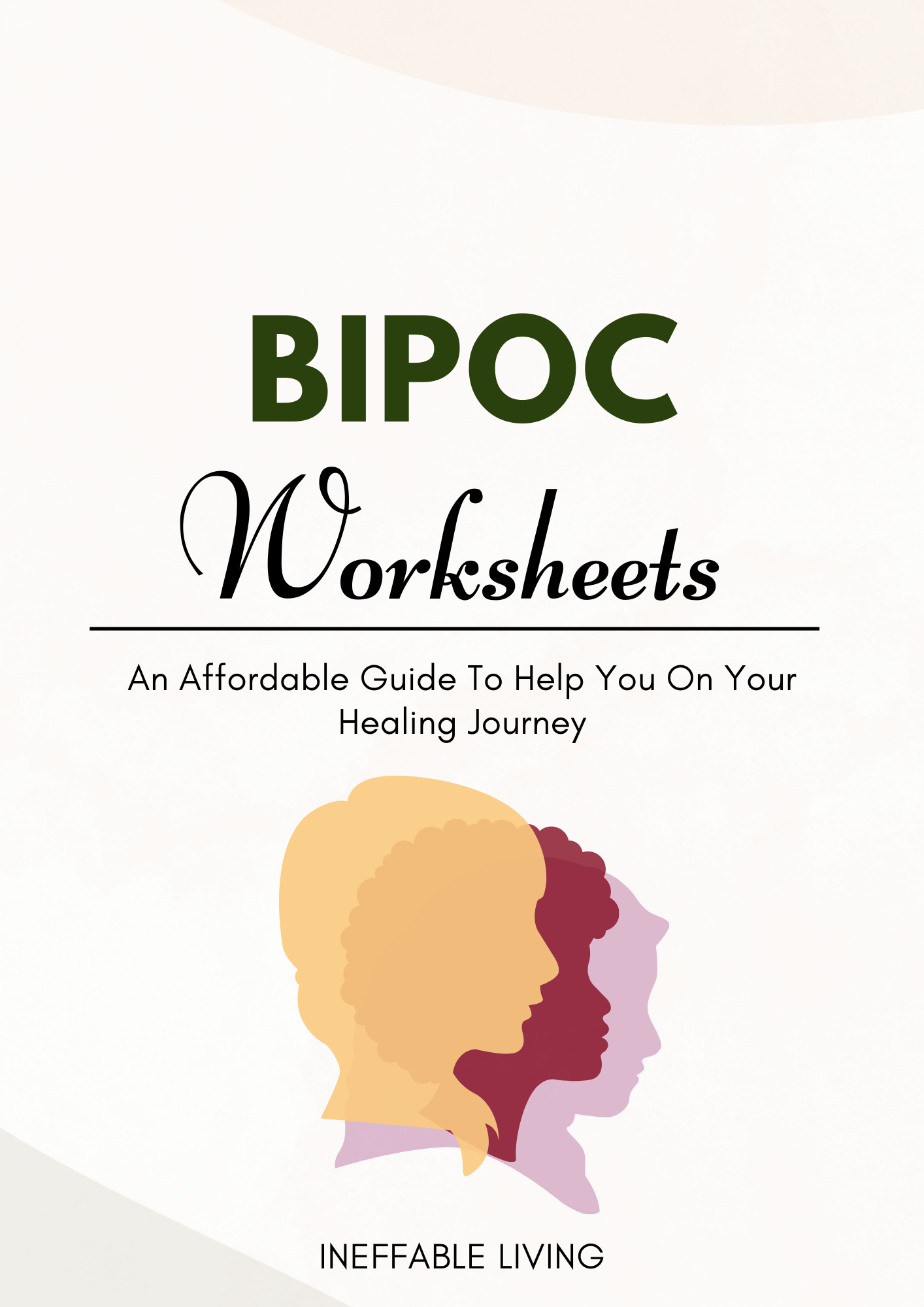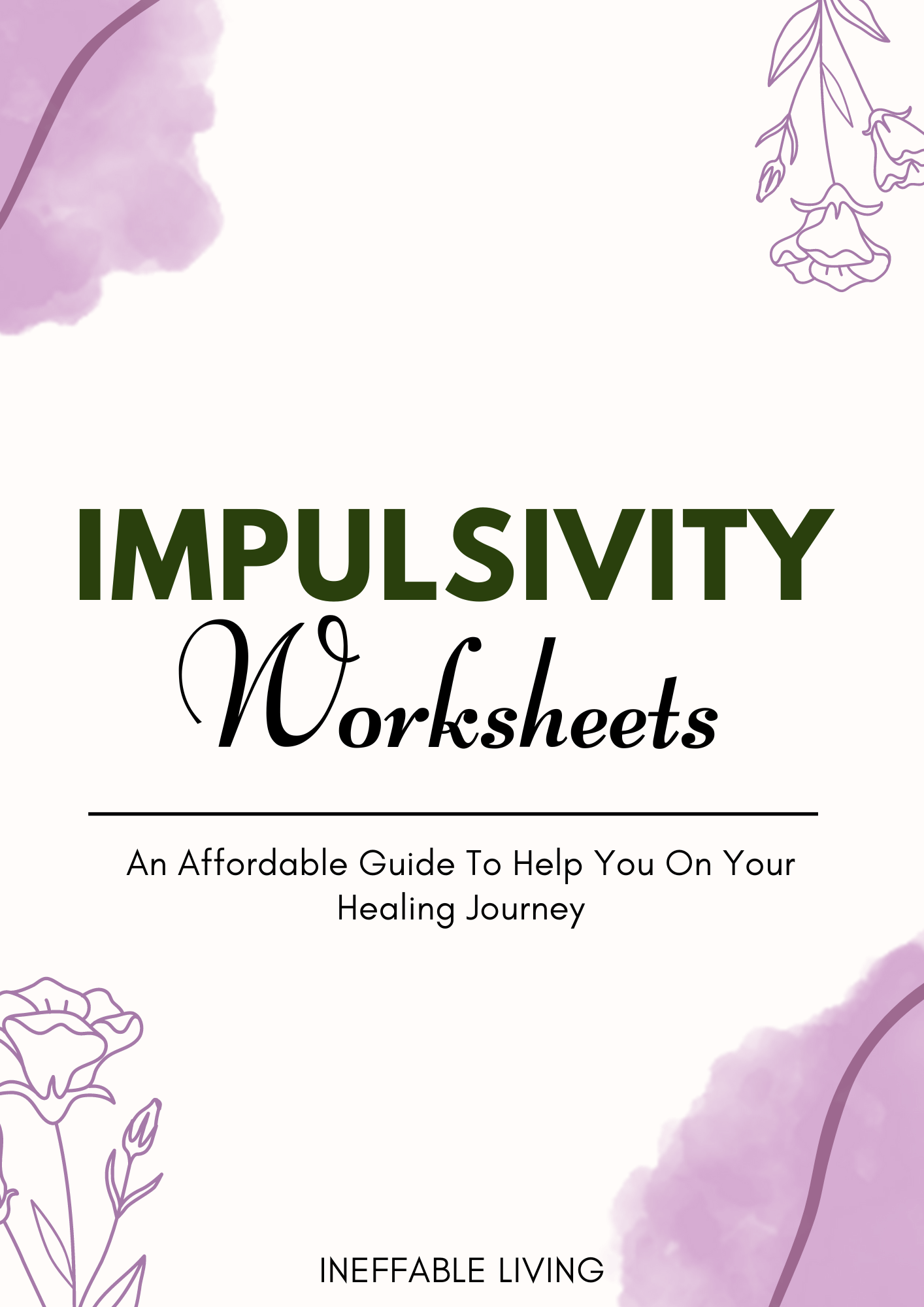Ambiguous Grief Worksheets
Get Grief Bundle for 75% off
Get Entire Shop Bundle for 85% off
NAVIGATING THE UNCERTAINTY OF AMBIGUOUS GRIEF
Grieving someone who is alive is known as ambiguous grief, or unconventional grief, or frozen grief.
Ambiguous grief is caused by a loss that occurs without a likelihood of reaching emotional closure or a clear understanding of what happened.
This occurs when the love one is:
(1) perceived as present when they are physically gone (e.g., disappearance of a family member, a soldier missing in action, Being adopted and not knowing the identity or whereabouts of the biological parents), or
(2) they are perceived as gone when they are physically present (e.g., a family member being physically alive but in a state of cognitive decline due to Alzheimer’s disease or dementia, etc.)
The person dealing with ambiguous grief is left searching for answers and living in doubt.
They may find themselves asking, “Am I still married to a spouse who doesn’t remember me?” or, “Am I still a parent to my alienated child?”
It can be difficult to grieve a halted loss and move on. This usually complicates and delays the process of grieving.
If this describes you, then Ambiguous Grief Worksheets can help you connect with navigate the uncertainty and find peace.
(+20 pages of evidence based exercises and techniques)
What’s Included?
- Identifying the Loss
- Exploring Your Emotions
- Identifying Triggers
- Challenge Negative Thoughts
- Accepting the Ambiguity
- Redefine Your Relationship
- Letter To The Lost
- Fear Facing
- Worry Time
- Self-Care Checklist
- Establish New Routines
- Envisioning Your Path Forward
Why Is It Difficult To Grieve Someone Who Is Still Alive?
Because the loss is confusing, people usually respond with absolutes.
They either act as if the person is completely gone, or they deny that anything has changed.
Both reactions can be distressing, preventing us from moving on.
Even when we react as if the person is completely gone, the absence of the symbolic, supportive rituals that usually come with a clear loss (such as a funeral) prevents us from experiencing the validation we need to move on.

